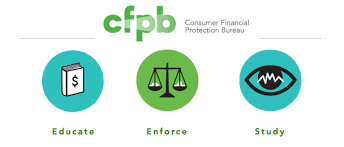Help for Agents Under a Durable Power of Attorney in Florida
Like many people, you may never have been an agent under a durable power of attorney before. Managing Someone Else’s Money: Help for agents under a durable power of attorney in Florida is a guide published by the Consumer Financial Protection Bureau to help you understand what you can and cannot do in your role as an agent. In that role, you are a fiduciary. For this guide, a fiduciary is anyone named to manage money or property for someone else. You’ll find brief tips to help you avoid problems and resources for finding more information.
The CFPB’s Office for Older Americans is the only federal office dedicated to the financial health of Americans age 62 and over. Along with other agencies, the Office works to support sound financial decision-making and to prevent financial exploitation of older adults. To help people (including family members) with legal authority to handle an older person’s money, the Office contracted and worked closely with the American Bar Association Commission on Law and Aging (ABA Commission) and state professionals to prepare this guide.
The Miller Elder Law Firm’s Shannon Miller was among a group of Florida attorneys that contributed to this guide.
How You Become An Agent
A family member or friend may ask you to make financial decisions in the situation that he or she is no longer able. The legal document is called a durable power of attorney where you are named the agent giving you the power to make decisions about money and property. The law gives you a lot of responsibility as the agent under a durable power of attorney. You are now a fiduciary with fiduciary duties. You are bound to manage money in the principal’s best interest, not yours, keeping that money separate from yours, with accurate record keeping. Remember, it’s not your money.
Four Duties of a Fiduciary
- Act only in the best interest of the person you are serving (called the principal). You must understand your role under State of Florida law and follow the guidelines exactly, know when the document becomes effective, and you must not loan or give money away to yourself or others (there are strict guidelines about how you may be paid).
- Manage the money with a careful plan. Use good judgment and common sense. As a fiduciary, you must be even more careful with this money than you might be with your own! You might pay bills, oversee bank accounts, and pay for things the principal needs. You might also make investments, pay taxes, collect rent or unpaid debts, get insurance if needed, and do other things written in the durable power of attorney.
- Keep money and property separate from your own. Mixing money or property makes it unclear who owns what. Confused records can get you in trouble with the family and also with government agencies such as adult protective services and the police or sheriff.
- Keep good records. You must keep true and complete records of the principal’s money and property. Florida law does not require you to give your records to someone or allow someone to look at them unless a court orders you to do that or the principal asks you to do that.
There are other situations to consider while serving as a fiduciary and you may read the complete guide here. The guide does not give you legal advice. Talk to a lawyer if you have questions about your duties.
How The Miller Elder Law Firm Can Help
Allow our experience in the field to work on your behalf. Contact The Miller Elder Law Firm today for an initial consultation at (352) 379-1900 or fill out our convenient contact form.

